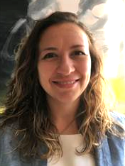Cancer-related disclosure among adolescent and young adult cancer survivors: A qualitative study Journal Article
| Authors: | Barnett, M. E.; Shuk, E. M.; Conway, F. P.; Ford, J. S. |
| Article Title: | Cancer-related disclosure among adolescent and young adult cancer survivors: A qualitative study |
| Abstract: | Purpose: Adolescents and young adults (AYAs) employ self-disclosure in normative social interactions and in promoting identity development. Disclosure is associated with numerous psychological and physical benefits. Little research has examined how AYA cancer survivors diagnosed during adolescence disclose their cancer history. Methods: Using a qualitative design, this study explored cancer-related disclosures among survivors (N = 26) 16-24 years old at study (M = 19.6 years), 14-18 years old at diagnosis (M = 15.6 years), and currently at least 6 months post-treatment (M = 3.2 years). Semi-structured interview guides were developed and used. Disclosure-related topics included survivorship communications and others' responses to AYAs' disclosure of their cancer experiences. Results: Grounded theory and thematic content analysis guided analyses, with an inductive data-driven approach. Three themes and eight subthemes emerged: "it depends" decision-making processes (don't ask/don't tell, shared experience, relationship potential), perceptions of others' responses (perceived apprehension, positive responses), and methods of disclosure (verbal, written, behavioral). No thematic differences were found by gender or age, although females reported greater frequency of disclosures. Conclusion: Disclosure emerged as a nuanced and complex process. "It depends" decision-making processes were most frequently endorsed, consistent with developmental complexities of this age group. This reflects social and psychological changes and highlights unique challenges for AYA survivors. This also reflects the importance of peers and social interactions as variables that influence disclosure. In the context of AYA cancer survivorship, understanding ways in which disclosure may bolster or hinder social support can assist survivors, clinicians, and families navigate survivorship. Implications for future research are discussed. |
| Keywords: | diagnosis; survivorship; psychosocial care; health; outcomes; disclosure; childhood-cancer; communications; issues; benefits; self-disclosure; experiences; cancer; social relationships |
| Journal Title: | Journal of Adolescent and Young Adult Oncology |
| Volume: | 3 |
| Issue: | 3 |
| ISSN: | 2156-5333 |
| Publisher: | Mary Ann Liebert, Inc |
| Date Published: | 2014-09-01 |
| Start Page: | 123 |
| End Page: | 129 |
| Language: | English |
| ACCESSION: | WOS:000350134000005 |
| DOI: | 10.1089/jayao.2013.0043 |
| PROVIDER: | wos |
| PMCID: | PMC4171114 |
| PUBMED: | 25276496 |
| Notes: | Article -- Source: Wos |
Altmetric
Citation Impact
BMJ Impact Analytics
Related MSK Work






